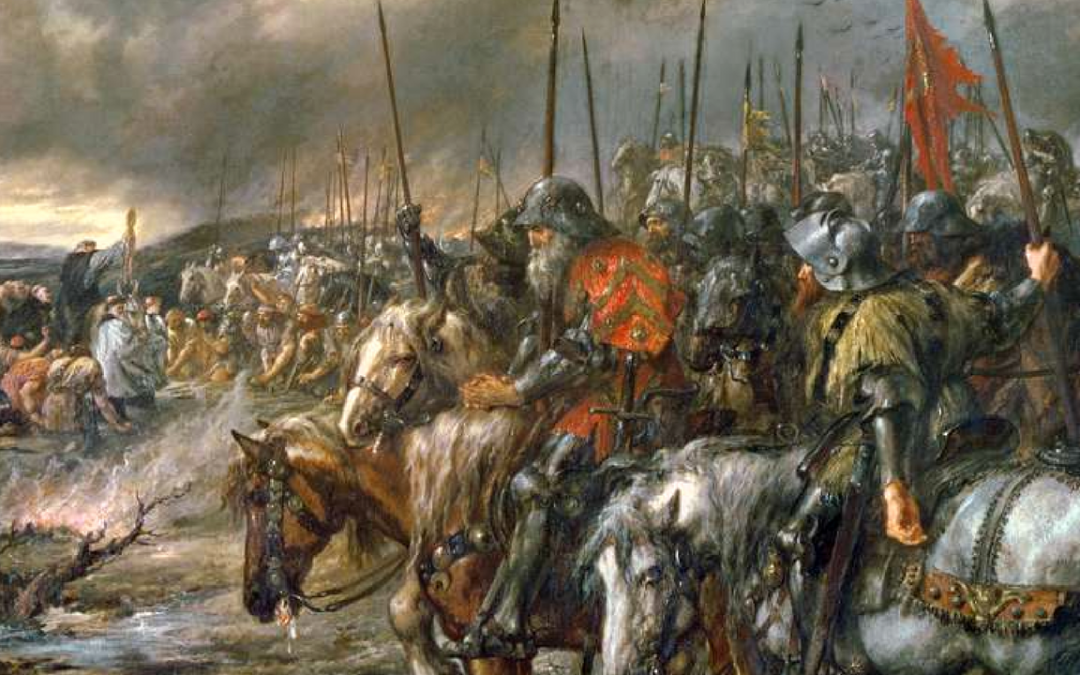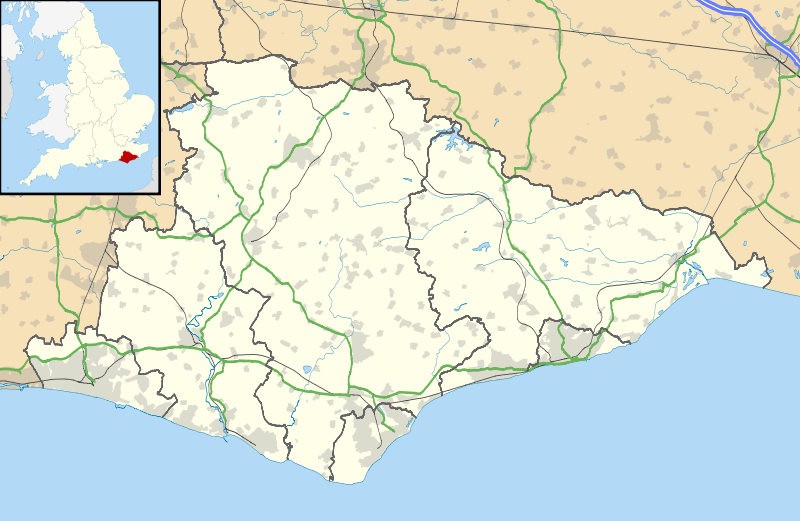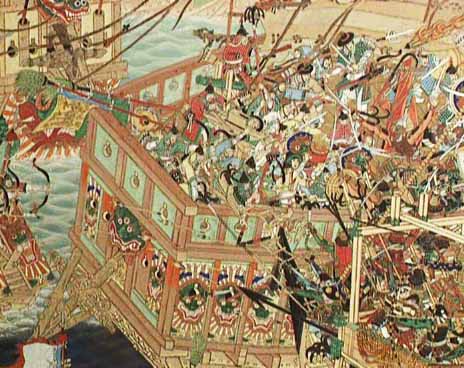The medieval times saw some of the most brutal, and bloody battles in human history. Medieval battles involved thousands of soldiers, heavily armoured, and using advanced strategies. In medieval battles two large armies would often agree to meet at a certain place, and even sometimes agreed what time to start. The greatest medieval battles caused massive devastation and changed the balance of power in ways that altered history forever.

Battle of Hastings
The battle was fought on 1066 between William of Normandy who had 7,000 soldiers, and Harold of England who had 10,000. The Norman archers fired uphill at the English. The arrows simply bounce off of the English shield wall. William attempted to advance uphill but was forced back by a barrage of spears, stones, and axes. As the Normans ran away confused and fearful, a rumour spread the William had been killed, which damaged morale. William rode through his forces, rallying his men and shouting that he was alive. The English charged at the retreating English, but William had managed to launch a counter-attack and overwhelmed some of the English forces. The Normans saw the success of this and decided to implement a series of feigned retreats to trick the English into breaking their shield wall and creating an opening. Late in the battle Harold mysteriously died, and the English forces collapsed. The English retreated apart from a small force of soldiers from the Royal Household who gathered around Harold’s body and fought to their deaths.

Battle of Ichi-No-Tani
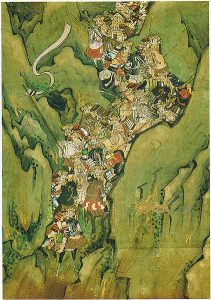
The Taira clan stayed at a defensive position ready to defend against the coming attack. They were in a narrow strip of shore, between mountains to the north, and the southern sea. Although defensible it was difficult to manoeuvre. Yoshitsune attacked by splitting his forces up and attacking in two directions. Noriyori’s force met the Taira in battle at Ikuta Shrine, in the woods to the east. Yoshitsune led a small force of 100 horsemen, and attacked the Taira at a mountain ridge to the north. The attack caused mass confusion and panic amongst the Taira. Famous warriors such as the warrior monk Benkei fought alongside Minamoto Yoshitsune. Only 3000 of the 5000 Taira soldiers were able to escape.

Battle of Myeongnyang
The Battle of Myeongnyang is one of the greatest battles in Korean history. Admiral Yi Sun-sin defeated the japanese navy of up to 330 ships with an army of only 13 ships. It was a disastrous defeat for the Japanese fleet, led by Toyotomi Hideyoshi. Half of Hideyoshi’s forces died and 30 ships were destroyed. None of Yi Sun-sins ships were destroyed and he lost only 11 men. At the beginning of the battle only Yi’s ship was firing, the rest were too afraid, and Yi’s subordinates all wanted to run away from such an immense force. The other ships watching were inspired by Yi’s bravery and joined in the fight. The tide of the water shifted and the Japanese ships began to collide with each other. Yi saw this and took advantage of the situation, he pressed forward ramming 30 Japanese war ships. The dense Japanese formation made it easy for the Koreans to fire upon them. Japanese sailors began to abandon ship, but the tides were too strong for them to get back to shore. By the time the battle had ended 30 Japanese ships were destroyed, half their army was dead, and Admiral Yi had achieved a monumental victory. This victory was so inspiring that many ships and sailors flocked to join Admiral Yi’s fleet, and they even gained support from the Chinese. Even though the Japanese fleet still had many of it’s ships, they could no longer threaten the Koreans.

Battle of Agincourt
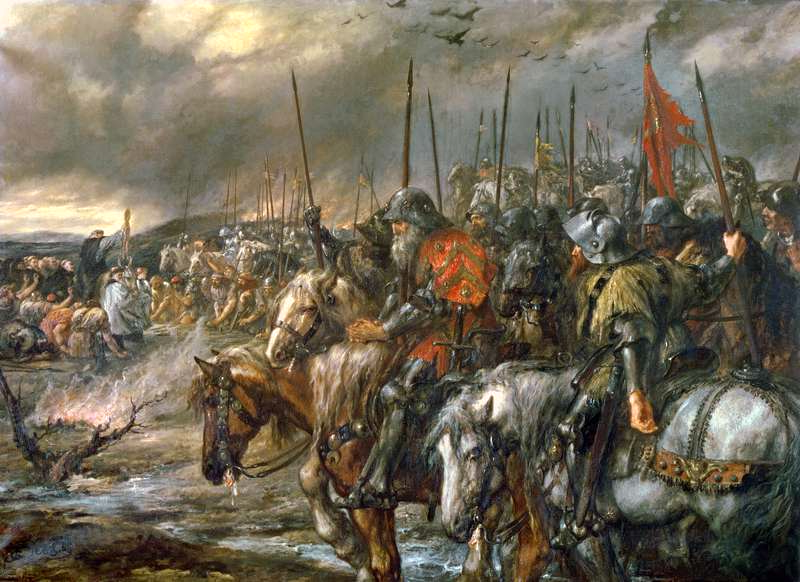
This battle resulted in an English victory which crippled France. Henry V defeated Charles D’Albret with a numerically inferior force. Henry fought in the battle and joined in with hand to hand combat. The battle was won mainly by archers. The English army was mainly made of English and Welsh longbowmen. Henry lost a puny 112 men whereas D’Albret lost up to 10,000 men. The english used stakes to protect their archers from cavalry which was an innovation at the time. Henry’s men were already weakened by sickness, and hunger.

Battle of Tours
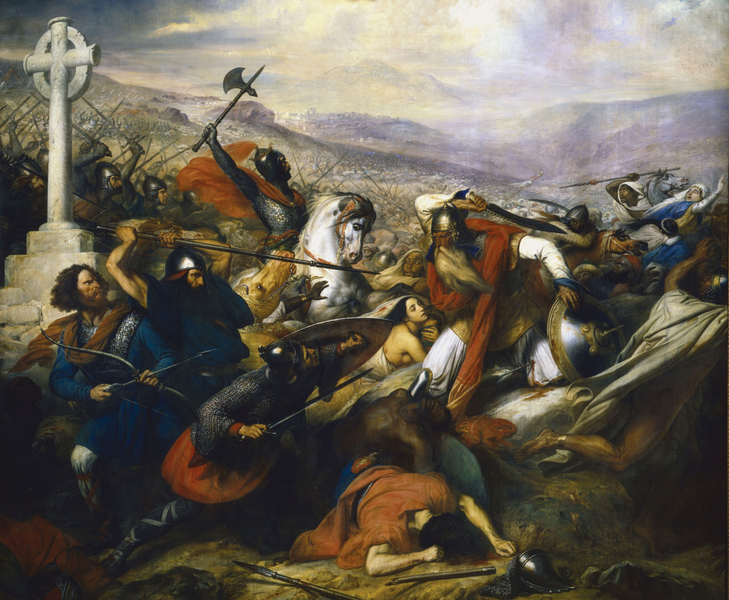
The battle of tours, also known as the battle of Poitiers, and the Battle of the Palace of the Martyrs. The battle was fought in an area between the cities of Poitiers, and Tours. The battle was fought between thhe Franks, and the Burgundian forces under Charles Martel, and the Umayyad Caliphate commanded by Abdul Rahman Al Ghafiqi. Rahman ordered his cavalry to charge repeatedly into the Frankish infantry, expecting to dominate them. No matter how many times they charge the Franks didn’t break. At the time this was considered impossible, but the Franks were well trained, and experienced. It ended in a victory of the Franks, even though they started with a smaller force their losses and casualties were nowhere near the Umayyad lost.

Castillon
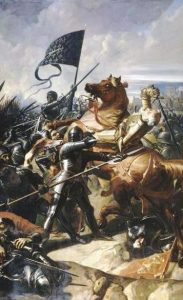
The Battle of Castillon was a decisive French victory that marked the end of the Hundred Years’ War. Because of this loss the English lost almost all landholdings in France, except for Calais. The English, led by Talbot, were riding the momentum of victory, and advanced on the French. There were reports of dust clouds coming from the French camp which indicated the French were retreating. Talbot pushed forward to attack the retreating French, but it turned out the dust clouds were only camp followers evacuating before the battle. The Englsh advanced into the full force of the French army. Even though Talbot had blundered, he continued fighting to preserve his honour. Eventually the English army was routed, with 4,000 casualties. Talbot and his son both died in the battle.

Bosworth
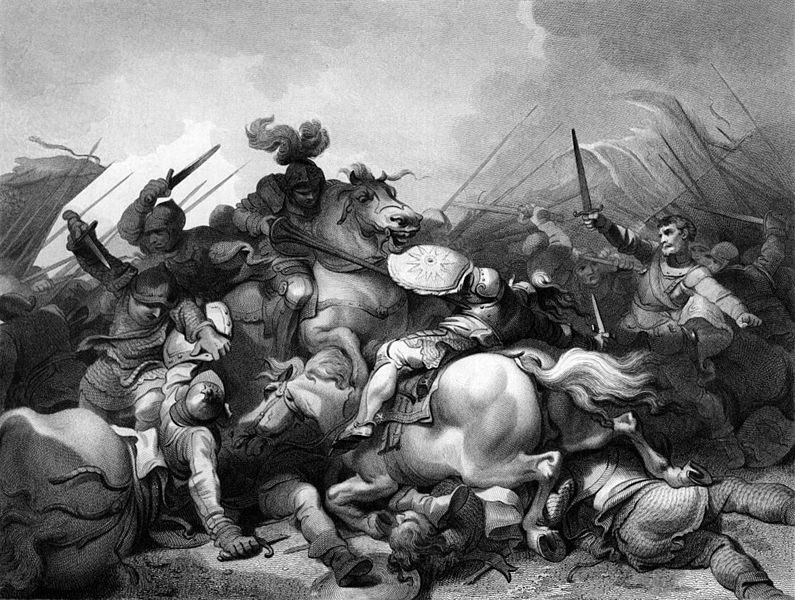
The battle of Bosworth started when Henry Tudor attempted to take advantage of Richard III’s unpopularity. Richard became King of England in 1483 when he had Edward V declared illegitimate, and took the throne for himself. Contempt for Richard grew because Edward V and his younger brother disappeared when he incinerated them in his tower. Henry Tudor was a descendent of the house of Lancaster and used this opportunity to challenge Richard’s claim to the throne. He tried to invade Richard but was stopped by a storm. He invaded him again and this time arrived unopposed. Their armies met south of the Market Bosworth in Leichestershire. The battle ended in a decisive Tudor victory, and led to Henry being crowned king.

Battle of Mohi/Muhi
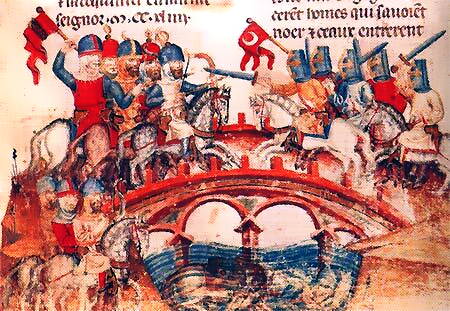
This was a part of the Mongol invasion of Europe and the most significant battle between the Mongol Empire and the Kingdom of Hungary. The invasion was a decisive Mongol victory which devastated Hungary beyond belief. Hungary was in ruins, half the inhabited areas had been destroyed, and a quarter of the population had died. Although the Mongols suffered heavy casualties, almost the entire Hungarian army died.

The Battle of Salsu
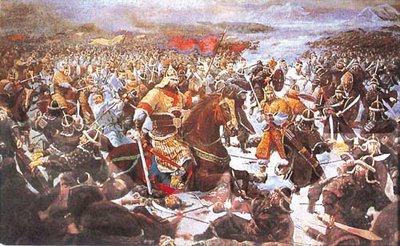
305,000 invading Chinese troops were defeated by only 10,000 cavalry at the battle of Salsu. General Eulji fought against the invading Sui for months, attacking while feigning retreat. He led them towards the Salsu River where he had laid an ambush. Eulji had put up a dam in advance to cut off the water flow. When the Sui forces were halfway through the shallow water, Eulji opened the dam and released the waterflow. The mass of water rushing towards them, destroyed the Sui army. Eulji’s cavalry then charged down to take out the remaining soldiers. The Sui suffered 302,300 casualties. It was one of the greatest medieval battles in Korean history. And one of the most devastating medieval battles in history.

Battle of Hattin
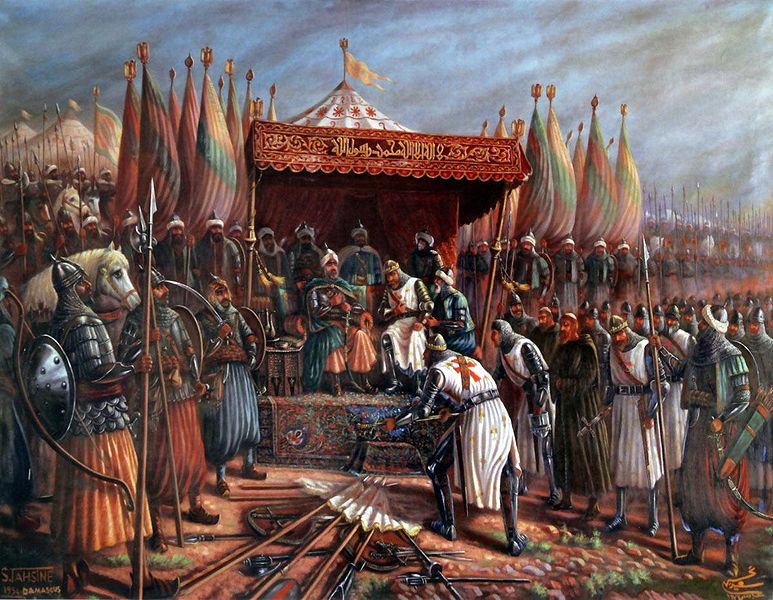
The Crusader army, surrounded by fire, had their last stand on a volcano called the Horns of Hattin. The battle started when Saladin lured King Guy’s forces into battle. King guy ignore advice not to do battle and put together an army of 20,000 men. Saladin had outsmarted the crusaders and exploited the terrain, so that the crusaders had no access to water while suffering in the heat. He then set fire to the surrounding area, and the Crusaders had to make their last stand on the Horns of Hattin. Saladin had forced the Crusaders into an unwinnable situation, and they eventually surrendered.

